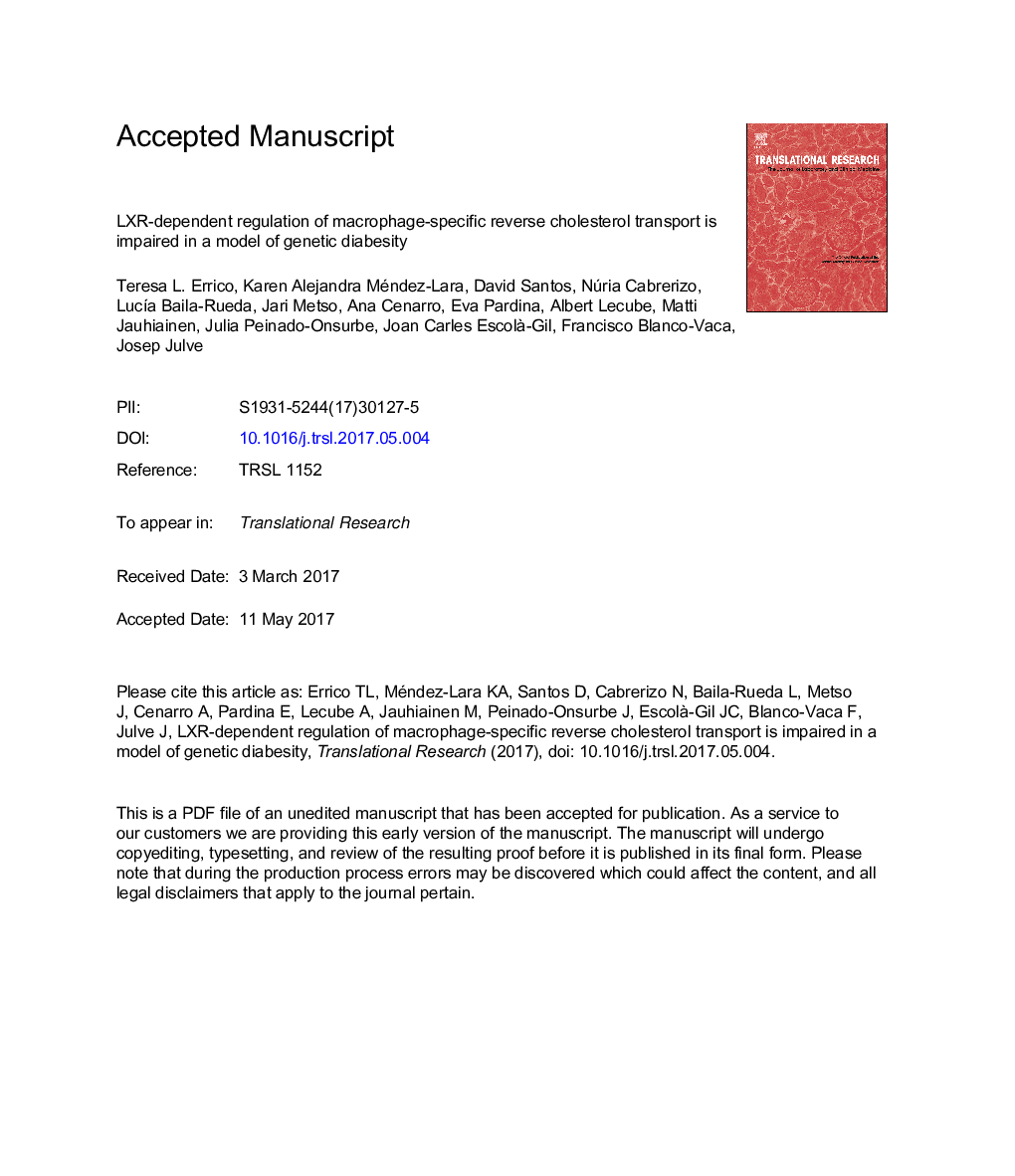| Article ID | Journal | Published Year | Pages | File Type |
|---|---|---|---|---|
| 5684926 | Translational Research | 2017 | 58 Pages |
Abstract
Diabesity and fatty liver have been associated with low levels of high-density lipoprotein cholesterol, and thus could impair macrophage-specific reverse cholesterol transport (m-RCT). Liver X receptor (LXR) plays a critical role in m-RCT. Abcg5/g8 sterol transporters, which are involved in cholesterol trafficking into bile, as well as other LXR targets, could be compromised in the livers of obese individuals. We aimed to determine m-RCT dynamics in a mouse model of diabesity, the db/db mice. These obese mice displayed a significant retention of macrophage-derived cholesterol in the liver and reduced fecal cholesterol elimination compared with nonobese mice. This was associated with a significant downregulation of the hepatic LXR targets, including Abcg5/g8. Pharmacologic induction of LXR promoted the delivery of total tracer output into feces in db/db mice, partly due to increased liver and small intestine Abcg5/Abcg8 gene expression. Notably, a favorable upregulation of the hepatic levels of ABCG5/G8 and NR1H3 was also observed postoperatively in morbidly obese patients, suggesting a similar LXR impairment in these patients. In conclusion, our data show that downregulation of the LXR axis impairs cholesterol transfer from macrophages to feces in db/db mice, whereas the induction of the LXR axis partly restores impaired m-RCT by elevating the liver and small intestine expressions of Abcg5/g8.
Keywords
Related Topics
Health Sciences
Medicine and Dentistry
Medicine and Dentistry (General)
Authors
Teresa L. Errico, Karen Alejandra Méndez-Lara, David Santos, Núria Cabrerizo, LucÃa Baila-Rueda, Jari Metso, Ana Cenarro, Eva Pardina, Albert Lecube, Matti Jauhiainen, Julia Peinado-Onsurbe, Joan Carles Escolà -Gil, Francisco Blanco-Vaca, Josep Julve,
